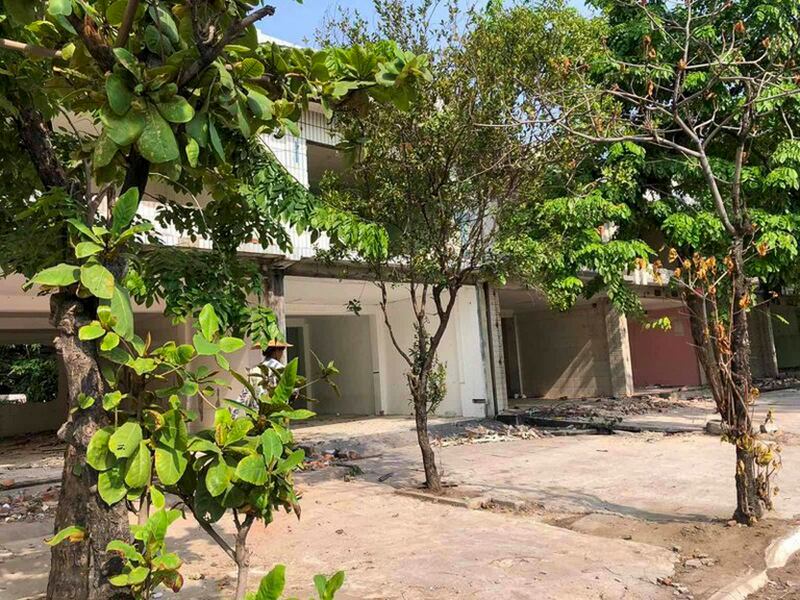Military junta authorities have evicted more than 500 people who were living in shops near Mandalay’s sports stadium, saying that shop owners and their family members never had permission to reside in stalls purchased more than 20 years ago.
The shop owners were forced out without any offers of an alternate piece of land or any compensation, according to a shop owner, who wished to remain anonymous for security reasons.
“They evicted us without providing any support,” he told Radio Free Asia. “It’s very hurtful.”
The shops in the area surrounding Ba Htoo Stadium were sold in 2003 through private contracts with Myanmar’s Road Management Department. A two-story shop measuring 15 x 30 feet (4.5 x 9 meters) sold for over 160,000 kyats (US$57) at the time.
Shop owners still had to pay more than 50,000 kyats (US$18) per month – plus an additional 10 percent – to the Road Management Department to rent the land under shops.
Because the area is in Mandalay’s downtown area, the value of a shop has increased to about 300 million kyats (US$106,000), according to one resident who didn’t want to be identified out of security concerns.

Road Management Department officials issued notices on May 24 that cited the 1955 Government Housing Act, which mandates eviction for living without permission. Residents of more than 100 shops, clinics and offices in the area were given 15 days to vacate.
Several residents told RFA that everyone moved out before June 7 out of fear that junta troops would forcibly remove them if they didn’t comply by the specified date.
A second shop owner told RFA that there was nothing in the original sales contract about how long shop owners could live there.
The lack of clear language about residence in the contracts and the government’s interpretation of the 1955 law has been “deceitful,” he said.
Those who can afford it have rented houses, but some people are dependent on monasteries, the first shop owner said.
“It has forced us to transition from owning our homes to living as renters,” he said. “The displaced include employees, retirees, the elderly and the disabled. Students had already registered for this academic year, making their education difficult due to this upheaval."
RFA couldn’t immediately reach Thein Htay, the junta’s Minister of Economy for the Mandalay region, for comment on the evictions.
Translated by Kalyar Lwin. Edited by Matt Reed.
